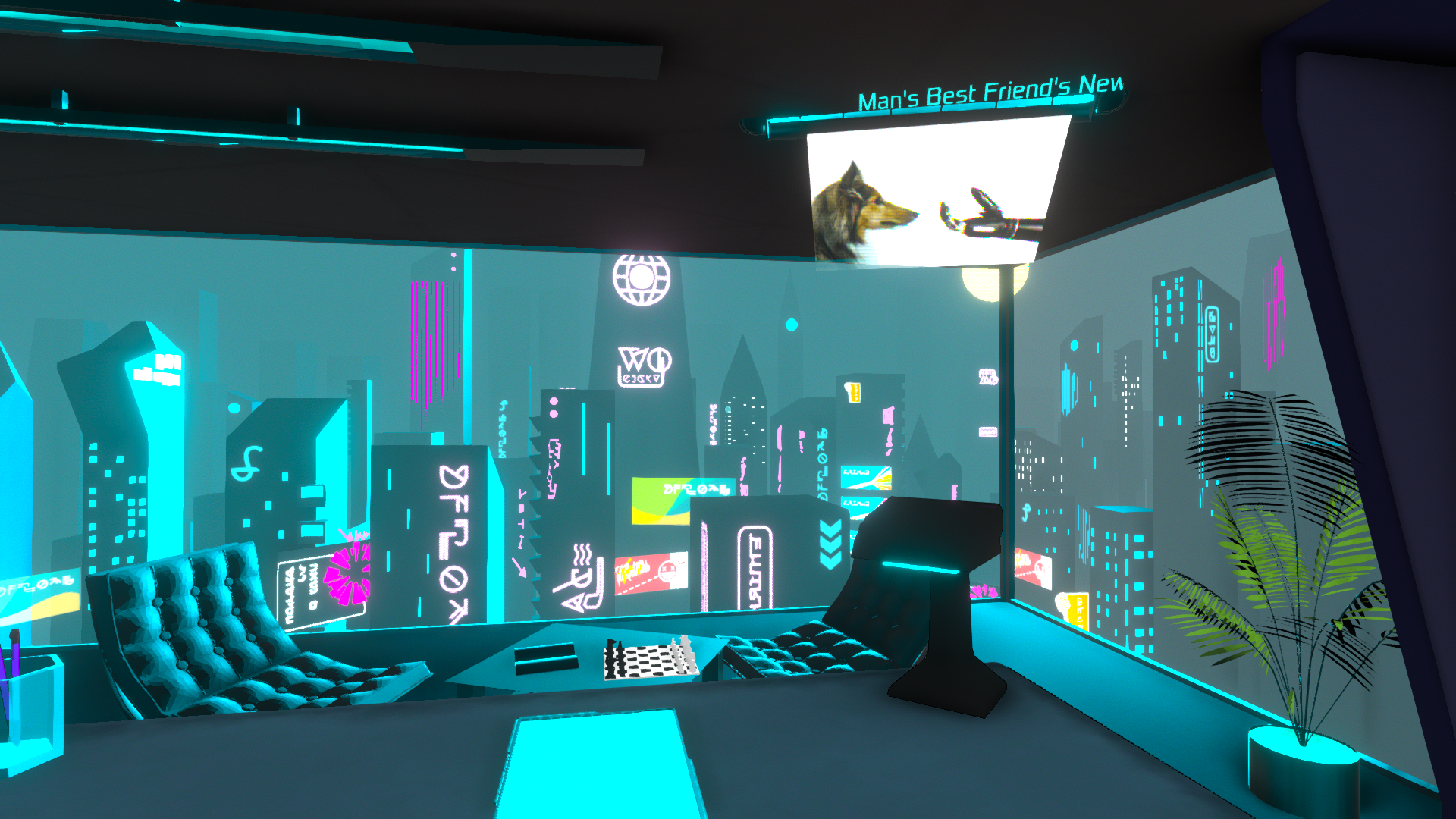Our Verdict
An extremely intelligent sci-fi interrogation sim that’s unpredictable for all the right reasons.
PC Gamer's got your back
What is it? Blade Runner's desk work turned into an intense interrogation game.
Expect to pay: $15/£12.50
Developer: James Patton, Clockwork Bird
Publisher: Clockwork Bird
Reviewed on: GeForce GTX 1650, AMD Ryzen 5 3550H, 8 GB RAM
Multiplayer: No
Out: Now
Link: Official site
Although Blade Runner has inspired three trillion and six movies, games, books, comics, albums, and cereals, only a tiny percentage of them have understood (or even tried to understand) the film. Hurling neon signs and Japanese words around does not constitute telling a cyberpunk story. Here, however, we have a game that not only understands Blade Runner, but thoroughly deserves to be mentioned alongside it. Y’know, like I just did.
The Voight-Kampff test is how blade runners determine whether an individual is human, or a human-seeming android. Silicon Dreams takes the idea of this test, and especially the machine involved in conducting it, and runs with it. It runs hard, it runs fast, and it runs with a hell of a lot of style.
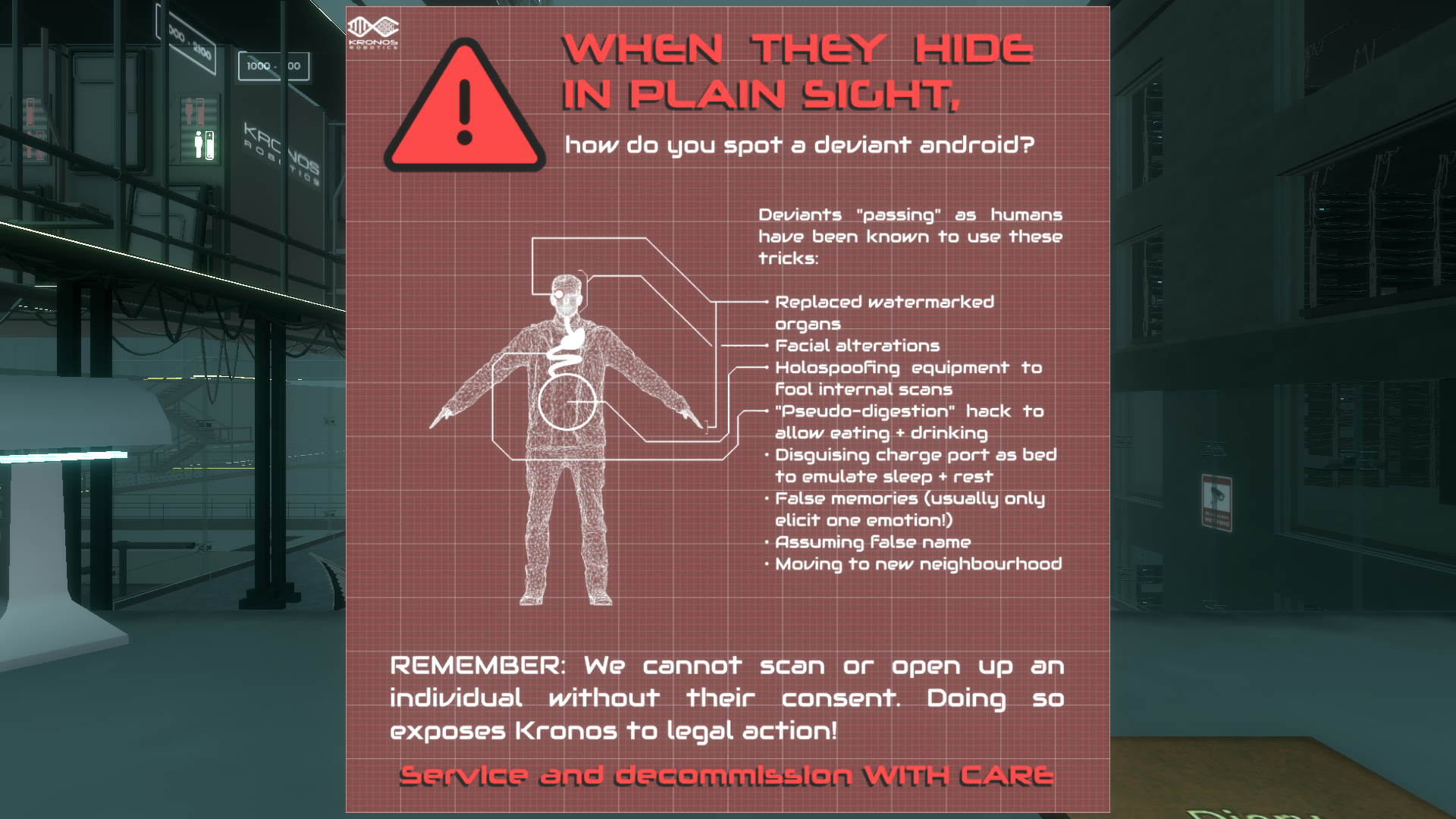
Your character is an android created with the sole purpose of running what is for legal reasons absolutely not a Voight-Kampff machine. Silicon Dreams (mostly) consists of a half dozen or so interrogations conducted with this machine. Usually you’ll be speaking with androids, but occasionally with a human. While you will at one point be inevitably tasked with determining whether somebody is human or android, the experience for the most part takes sharp turns into territory you’ll never see coming.
With no voice acting and relatively simple graphics, there is enormous pressure on the script. Which it lives up to—the writing is incredible. Somewhat ironically, each and every android I meet seems more human than most of the other characters I've met in other games.
The depth and texture of the interview subjects is a vital part of the experience. I’m being pulled in several directions at once. Every interview has an accompanying report to be filled in and, for androids, one of three choices must be made: Release, send for maintenance (which guarantees a memory wipe), or destroy. Things are not nearly as simple as they appear, of course.
The company I work for is the manufacturer of these androids, and holds no sympathy for androids that begin to evolve emotionally. The individuals themselves, of course, have no desire to be memory wiped or, indeed, to die. Yet as an android myself, I am expected to toe the company line at all times. It’s made clear that any attempt to defy my employers, or provision of information that contradicts their expectations (intentionally or otherwise), will immediately cast suspicion on me. I am assessed for my performance after every interview. If my rating falls too low, I will be destroyed and replaced.
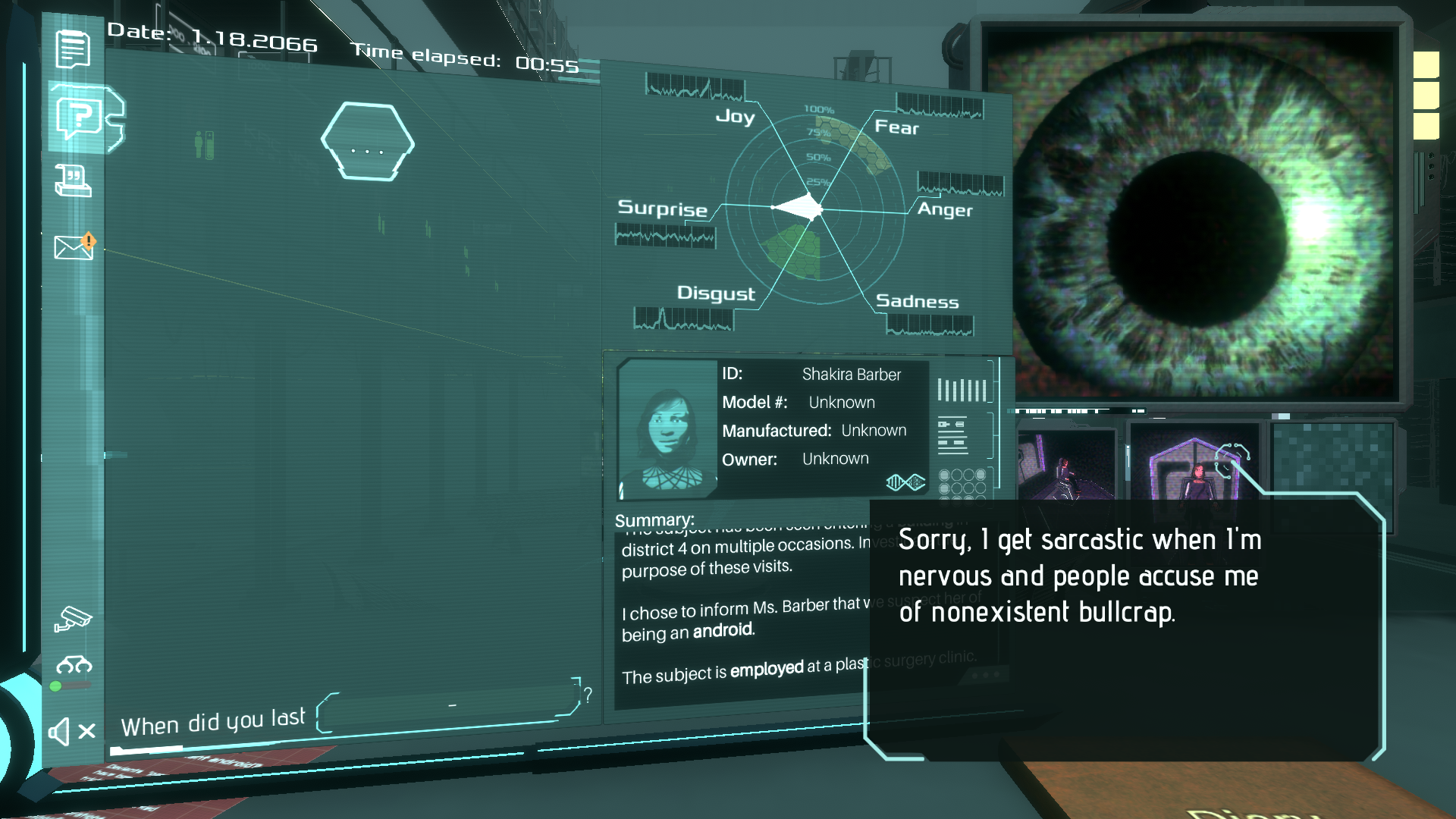
Double Deckard
I think it's possible to fail in this way before the end, but I was more than invested enough to do everything I could to avoid that. During one sequence that you'll probably see coming a mile off, but is no less powerful for that, I was constantly on edge until it was made clear that I was allowed to carry on. Whether I was deciding the fate of somebody else, or worrying about my own, Silicon Dreams was full of dread.
Appropriately enough, emotions are central to play. The interrogation machine you use displays the emotions that accompany the answers of interviewees, exposing lies and confirming truths. Certain android models are also supposed to have certain emotions limited or disabled, and the company expects you to report any deviations. Ingratiate yourself with the company enough, and you even unlock the ability to slowly induce an emotion of your choice.
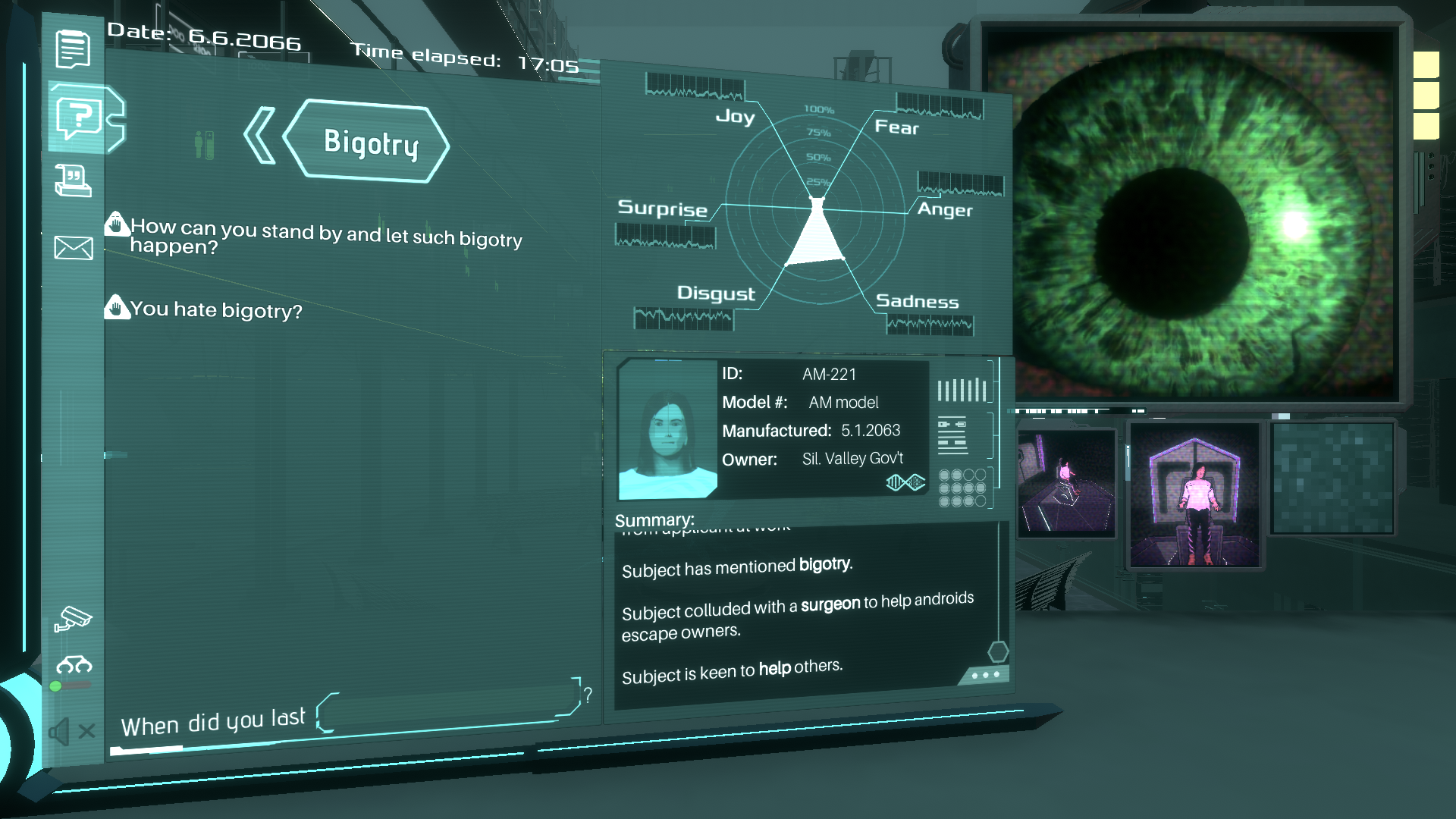
I won't spoil any of the surprises, but I can give a few examples of the emotional journey Silicon Dreams took me on. During one interrogation, I was told that in order to get a truthful answer to an important question, I needed to induce fear in the subject. Hating myself for doing so, but considering it necessary, I locked down the shackles in the interview chair. The surprised interviewee immediately became distressed. I disengaged the shackles as soon as I had the info I needed.
During that particular interrogation, I was dangerously close to the scrapheap, so I sucked up to the company's wishes more than usual to save my shiny metal ass. That included wiping the android's memory, a decision I still regret even as I type this. As a final kick in the moral teeth, even then I only just scraped out a positive assessment.
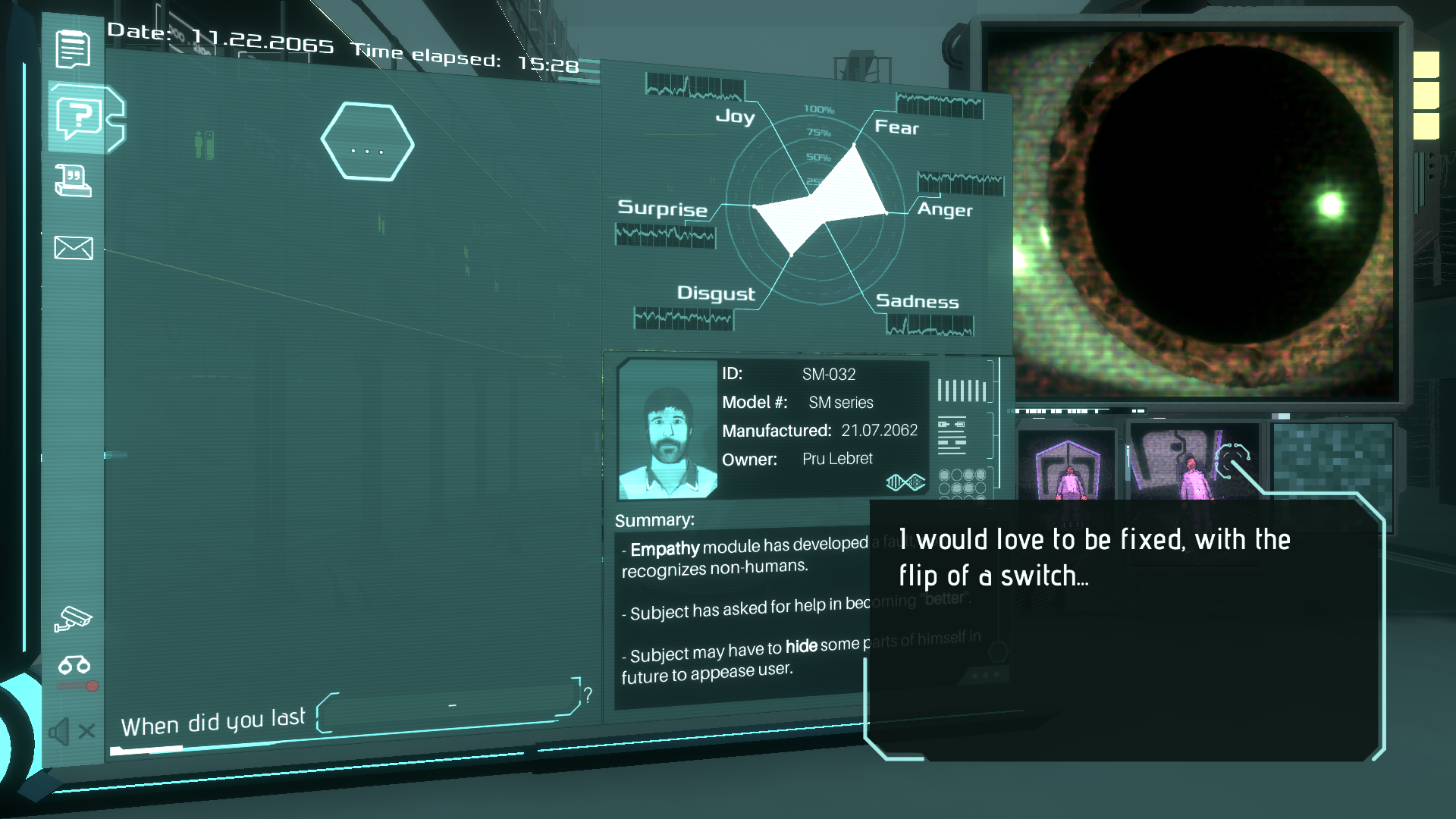
Conversations twist and turn in unexpected ways. One android I decided to trash, then save, then at the end decided to trash but felt terrible about it; another, I sympathised with to the point where I decided that a memory wipe was the best option, and I was sad when the company destroyed him anyway; and another, the story that will stay with me the longest, was bittersweet. Through my actions, this android retained its personality but had its life expectancy suddenly blunted. The reason, which was revealed later, made me smile.
While typically subtle and smart, with allusions to working class life, Silicon Dreams could've done without the cringeworthy references to Blade Runner and Do Androids Dream of Electric Sheep? I also have mixed feelings about the first ending I got, which didn’t lead on smoothly from my final actions. Nonetheless, it’s an experience that will stay with me, and one that I know I’ll be going back to.
An extremely intelligent sci-fi interrogation sim that’s unpredictable for all the right reasons.
